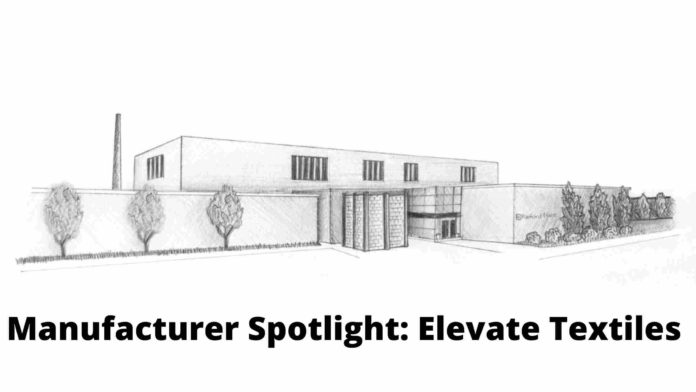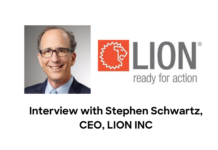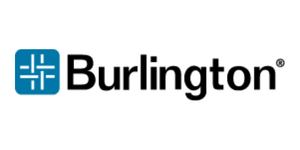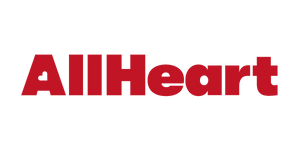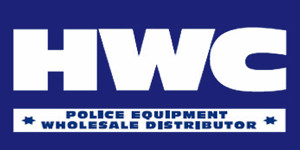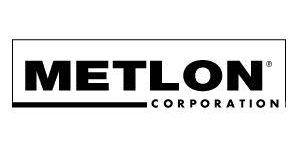Since 2020 effectively kicked off the Age of COVID, every single business, large or small, has been affected by the worldwide pandemic in one way or another. Some companies were forced to slow production down. Others halted production altogether. But for Elevate Textiles, production had no choice, but to continue as demanded.
Back in March of 2020, most heads of state implemented quarantine-style procedures to reduce the exposure of COVID. This meant people had to stay home and businesses had to close if your industry was deemed nonessential. However, for public safety workers such as firefighters, police officers, and first responders, that wasn’t the case. Deemed essential workers, public safety professionals had to remain on the job, on the street, at the office, and wherever they were needed. This meant they would continue to require uniforms for daily assignments.
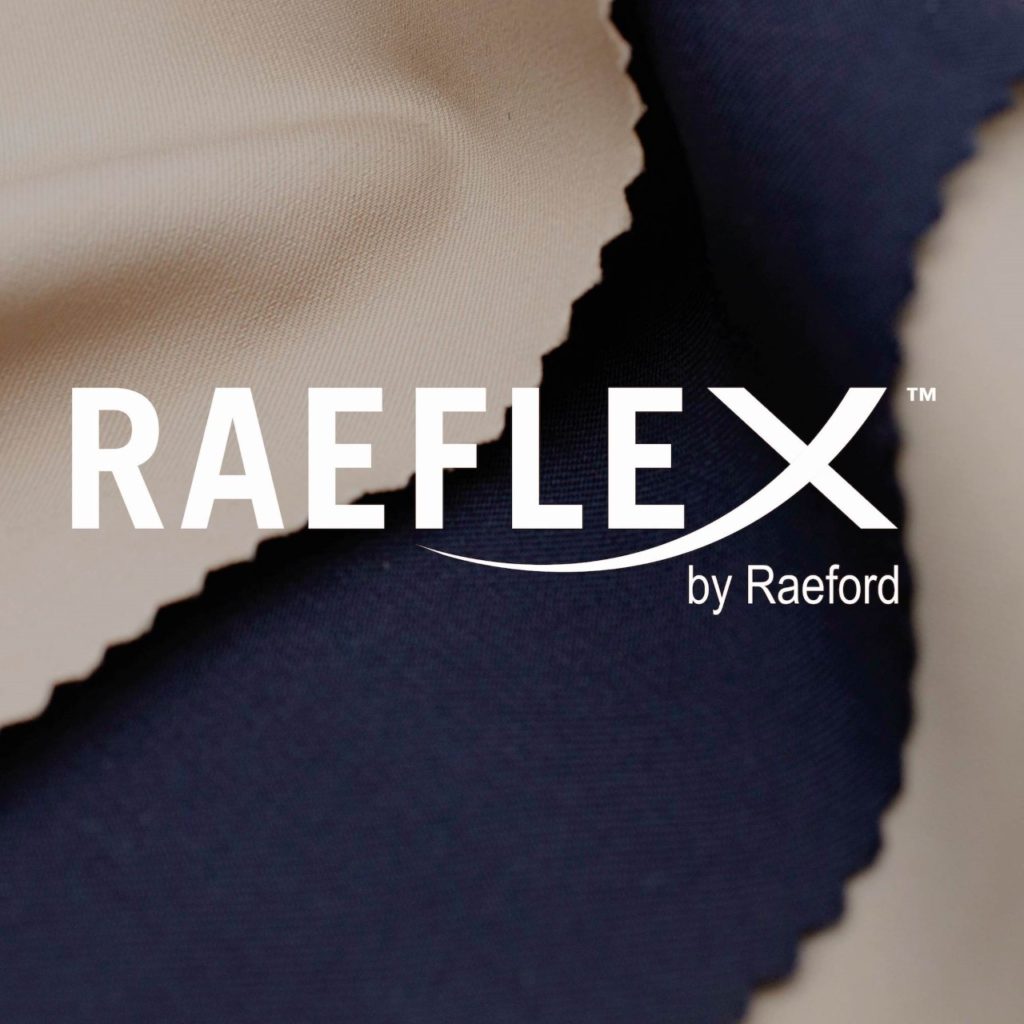
It also meant that uniform providers, suppliers, manufacturers, and the like were essential, as well. As a public safety uniform manufacturer, Elevate Textile saw no choice but to continue production. Since then, they’ve become one of the biggest textile production companies in the world with offices in the United States and Mexico.
I, recently, sat down with Griffin Jones, the Business Manager of Uniform Fabrics at Elevate Textiles, to discuss his company’s past, present, and future, the emerging fabric technology they’re investing in, how they mitigated the dire effects of COVID, and what readers out there can expect from them next in this edition of Manufacturer Spotlight.
KENNETH: First of all, describe Elevate Textiles.
GRIFFIN: We’re a textile producer. We make fabrics that go into a myriad of applications. I work for Burlington Industries, technically, which is a part of Elevate Textiles. What we do and what we focus on are creating the fabrics for uniforms for soldiers, police officers, paramedics, and other public safety professionals. We produce dress uniform fabrics for all five branches of the US military. We also service militaries and government agencies in foreign countries like Israel, Columbia, Mexico, Canada, and more. The other thing that we do is partner with the largest garment manufacturers in the uniform area.
KENNETH: Walk me through a bit of the history of Elevate Textiles.
GRIFFIN: Well, Burlington Industries was founded in 1923 by J. Spencer Love in Burlington, North Carolina. Originally, it started out as a cotton producer. But in the later 20’s and early 30’s, the cotton market became oversaturated. So, Love pioneered the usage of rayon fabric – it was very new at the time. By doing that, it provided a nice boost during the Great Depression and she was able to acquire other companies and bolster their own offerings. Around the time of WWII is when she started to build products for uniforms. In 1956, Burlington acquired Pacific Mills and that was when the Raeford facility in North Carolina joined and became part of Burlington Industries.
In the 50’s and 60’s, Burlington Industries became the largest textile producer in the world. In the 70’s and 80’s, it continued to be the largest, but as offshoring became more and more prevalent, it became difficult to combat its effects. In the early 2000’s, offshoring continued to grow and grow and by 2002, they were bought and merged with Cone Denim and subsequently, Safety Components. The resulting organization was known as International Textile Group.
In 2016, the company was sold to a group called Platinum Equity in Los Angeles. The following year, Platinum Equity acquired American & Efird and Gutermann and formed those companies into what would eventually be called Elevate Textiles.
KENNETH: How have you overcome the challenges presented to us by COVID?
GRIFFIN: When it was apparent in early April that this was going to impact our businesses and personal lives in a very real way, we had to ask ourselves, “What are we going to do? How do we protect our team and the business itself while still offering the same standards of quality for our customers and their fabric orders?”
We were grateful the uniform industry as a whole was considered essential. That meant we could continue on with production. After all, police officers and firefighters are essential – regardless of the circumstance. They’re always going to be needed. Which means they need uniforms, as well. Which also means uniform providers need to remain open. So, we were very grateful that we weren’t as badly affected as some other businesses in other industries.
The first step we took was to immediately become flexible and to work with our partner companies out there to ensure that the public safety workers like police officers, firefighters, and so on – the individuals who are still going to be working had the uniforms and accessories that they needed in order to do their jobs. We also needed to do so in a responsible way for our team members.
At the end of December, we were already making investments in PPE for people at the plant. In early February, we were already in the midst of shifting to remote spaces to provide a measure of safety for our team members. Like everyone else, we have suffered some losses. And it has been a real fight to provide the same level of service needed while being socially distant, as they call it.
We managed the things our customers and the public safety community needs and in short order – while still being responsible for our group.
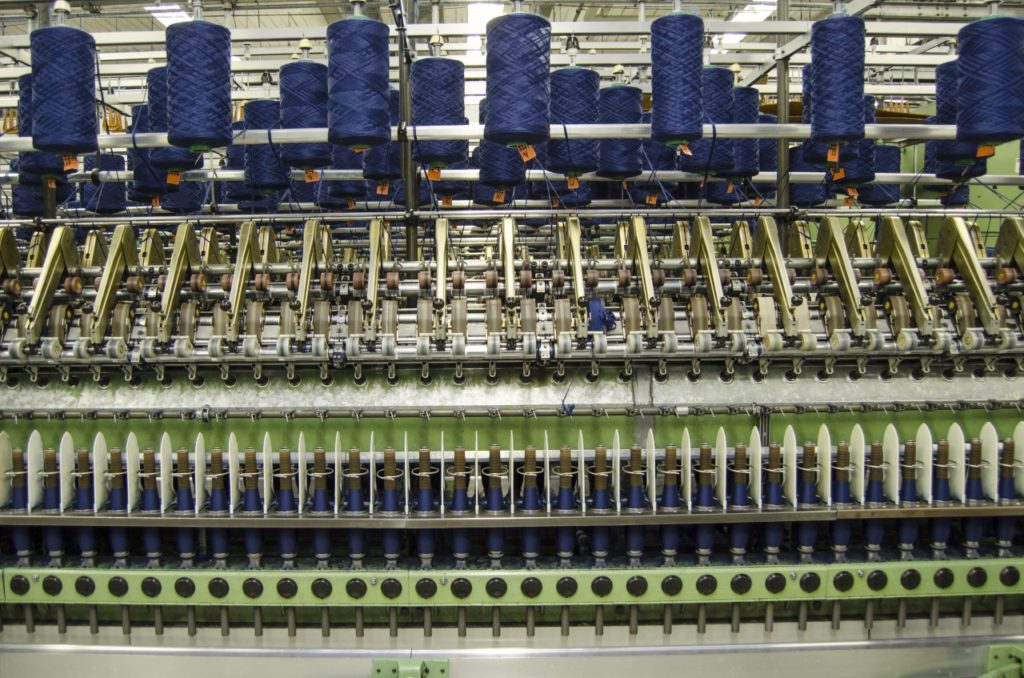
KENNETH: What would you consider are the strengths of Elevate Textiles?
GRIFFIN: The strengths of our business are consistency, accessibility, and innovation. We pioneered a lot of the fabric technology that is prevalent in the industry today along with many of the standards.
We all know that a uniform is not the same as an apparel garment – that’s something you can just get at a retail store. For instance, if you and I both go to a store and buy a shirt, the chances of us standing beside each other in the same shirt are very slim. There’s a little wiggle room in there. What about a soldier or a police officer? They’re going to be standing beside each other wearing the exact same thing every day for years. So, what we have to focus on and be aware of is maintaining the image of those agencies and maintaining the consistency of that image across all of their employees.
There are a lot of textile companies in the world and there’s a lot of people who work to make great products. But there’s very few companies like us who are focused on uniform fabric. Not just fabric, in general.
KENNETH: What gap do you see in the industry that your business is filling?
GRIFFIN: We make synthetic, poly-rayon, and poly-wools. Our specialty is wool and wool-blend uniforms. Wool is honestly the perfect fiber for the uniform industry. And the reason for that is that’s it’s very durable and it holds color very well. It has a professional looking appearance and it has the ability to work in multiple climates.
When you think about a police officer, they wear the same uniform regardless of weather. We have built fabrics that satisfy the broad range of environments that people in public safety have to work in while maintaining professionalism.
The Raeford Uniform division is named after our facility in Raeford, North Carolina. The mill was built in 1952 and acquired in 1956 and it’s been the hub of our uniform production ever since. Currently, it has a sister plant, Casimires, in Yecapixtla, Mexico. These two plants are where we produce most of our fabric. The Mexico facility primarily produces products for civilian first responders and international agencies.
KENNETH: What new features or fabrics is Elevate Textiles currently working on?
GRIFFIN: We were of the first few people to start doing blends and that’s where you take worsted wool and you combine it with polyester. That way you get the best of both of these fibers. Agencies all over the world have different standards for uniform fabric blends that we tailor to their needs.
The main need for development currently in the uniform area is to create greater functionality, which in many cases is done by incorporating stretch into the fabric. The first generation of stretch was the addition of mechanical stretch, which is a finishing process that puts stretch into the fabric. Naturally, there were some limiting factors to this. You can only insert so much stretch before you degrade the quality of the fabric.
The next iteration of that was to add spandex or Lycra into it. It does, however, have some issues when it comes to uniforms. You are limited with dry cleaning fabrics with spandex or Lycra due to certain types of staining that can occur and the life cycle of those types of fiber are sometimes less than what is required by a uniform.
This leads to our new product line, Raeflex™. When it comes to public safety workers, people want to feel safe and that they’re with a professional when they call for them. The officers and the first responders need a high-level of functionality when it comes to their garment. If you don’t have a strong base for the functionality of the garment, it will always be limited. And what we have done is combine a bicomponent filament yarn with worsted wool in a patent pending process that gives twice as much stretch compared to similar uniform products with spandex or Lycra. Most importantly, it gives you the sharp professional appearance of a tailored uniform with a much more athletic performance profile.
Basically, you have officers who need this functionality, and you have the public who want to feel safe and protected by uniformed professionals. We’re kind of bridging that gap.
In addition to adding more stretch, what is created is a more durable stretch. The yarn that we’re using is a multi-filament yarn. So, if one filament were to break, you’d have 70 more filaments to continue on with that stretch. End users can also launder it themselves or have their garments dry cleaned. We’re trying to offer more options and values on a single platform for consumers and for our customers – the garment makers.
KENNETH: What would you like to tell potential customers about Elevate Textiles who’re reading this spotlight article?
GRIFFIN: What we focus on is a consistent quality product. It may not be the easiest or fastest, but we make products people can count on it. The people who use our products have to have it work and on the first time. There’s a lot of great textile companies out there, but we are a textile company that’s focused on a great product for first responders, firefighters, police officers, and others. You can trust us with your uniforms.




